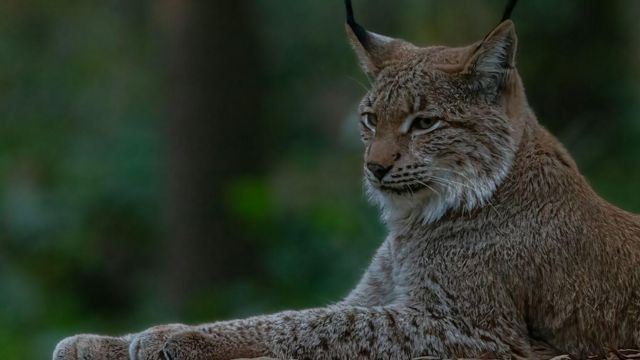The U.S. Fish and Wildlife Service wants to protect the endangered Canada lynx species in the continental U.S.
The Service wanted to change the way it designates important habitats. The changes would affect 19,112 square miles of land in Colorado, Idaho, Montana, New Mexico, Washington, and Wyoming, among other states.
According to a news statement from the U.S. Fish and Wildlife Service, these steps will help protect this rare, snow-adapted wildcat that lives in cold boreal forests and eats lots of snowshoe hares.
The suggested change would try to find a balance between the need for conservation and the need for land use, the release said. Before this, the court had to review something. According to the release, the designation for the western United States would be changed by cutting out places where lynx are “unlikely to thrive” and adding more land that the federal government thinks is better for the animal’s needs.
This plan doesn’t change anything about the vital habitat that has been set aside in Maine or Minnesota.
“The final recovery plan for the Canada lynx sets clear strategies and measurable goals to support long-term conservation throughout its contiguous U.S. range,” it said. “The Service collaborated closely with state, Tribal, and federal partners to develop science-based conservation measures aimed at reducing risks to Canada lynx.”
The release said that one of the biggest threats to lynx is the way that global warming changes the environments of species that live in boreal forests.
“The Canada lynx is a medium-sized wildcat adapted to cold, snowy environments, where it relies on its large paws to hunt snowshoe hares,” the release stated. “Lynx are common and widespread in Canada and Alaska, but their populations in the contiguous U.S. are small and scattered, and they are under a lot of stress from habitat loss and human activity.” In 2000, the Endangered Species Act said that the Canada lynx in the lower 48 states was “threatened.”
The suggested rule was put in the Federal Register by the U.S. Fish and Wildlife Service on November 29, 2024. People had 60 days to comment on it.
Before putting out a final order, the Service will look at every comment sent in by January 28, 2025. It can be found at regulations.gov under case number FWS–R6–ES–2024–0142.

